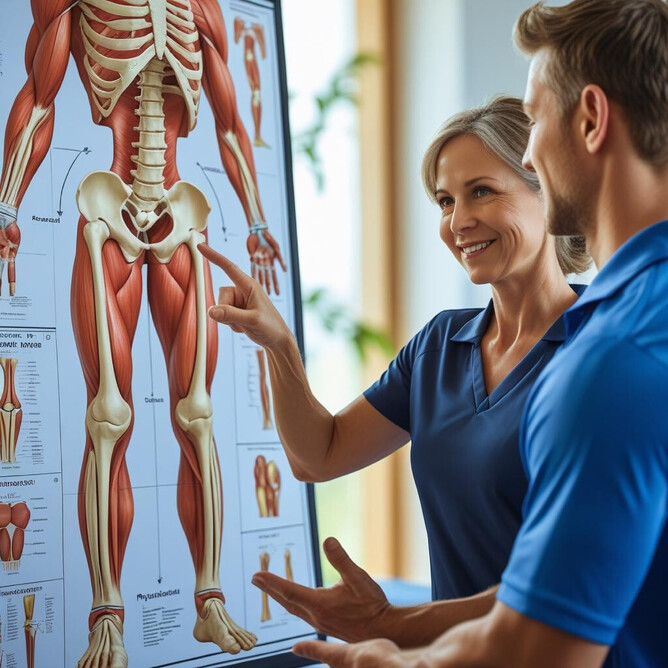Living with psoriatic arthritis can bring unique challenges, especially when it comes to movement. This autoimmune condition causes joint pain, swelling, and stiffness, and over time, it can impact how you move through daily life. But with the right support, gentle exercise can become a powerful tool for managing symptoms and maintaining independence.
At Holistic Strength, we believe in meeting people where they are. We help build safe, achievable exercise routines, tailored to your needs, goals, and energy levels.
What is Psoriatic Arthritis?
Psoriatic arthritis is a long-term inflammatory condition that affects the joints. It’s linked to the skin condition psoriasis, and it can cause fatigue, stiffness, swelling, and pain. While the symptoms can vary from person to person, the impact on daily movement can be significant.
That’s where Exercise Physiology comes in.
Why Movement Matters
It might feel counterintuitive to move when you’re in pain, but the right type of exercise can ease discomfort and support joint health. Low-impact movement can help:
Reduce stiffness and swelling
Maintain strength and flexibility
Boost circulation and energy
Support mood and mental wellbeing
The key is finding activities that feel good for your body, and knowing when to slow down or modify based on how you’re feeling.
Gentle Movement, Big Results
Some of the best exercises for psoriatic arthritis are low-impact and easy to incorporate into your day:
Walking: A great way to keep your joints moving without pressure.
Swimming or hydrotherapy: The water supports your body, making movement feel lighter.
Yoga or tai chi: Helps improve flexibility and balance while calming the mind.
Chair-based exercises: Perfect for days when standing or walking feels too much.
Working with an Exercise Physiologist means your plan can grow and shift with you, adapting as your symptoms or energy levels change.
Warm-Up, Cool Down, and Listen In
Every session should begin with a warm-up and end with a cool-down. These simple steps help prepare your body and reduce soreness later on. Think light stretches, slow breathing, and mindful movement.
And just as importantly, listen to your body. Some days may feel easier than others. It’s okay to take breaks, modify your routine, or rest when needed. Movement should feel supportive, not painful.
The Role of Allied Health and the NDIS
At Holistic Strength, our Exercise Physiologists work closely with other allied health professionals, including Occupational Therapists and Therapy Assistants, to support your overall wellbeing.
As a registered NDIS provider, we help participants access therapy and movement supports that align with their goals, whether that’s walking to the shops with ease, reducing morning stiffness, or feeling more confident in their body.
Let’s Move, Together
Managing psoriatic arthritis isn’t just about treating pain; it’s about improving your quality of life. Gentle movement, guided by professional support, can help you feel more connected to your body and your routine.
Looking to build a personalised exercise plan? Reach out to Holistic Strength to see how our team can support you through movement that works for you.
